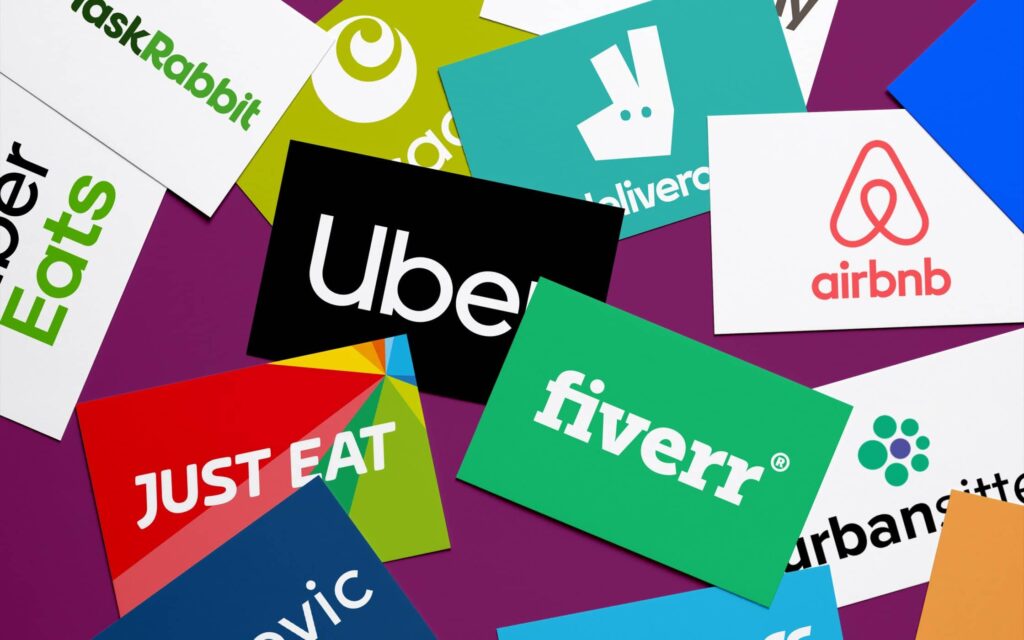In recent years, the gig economy has emerged as a powerful force, providing individuals with the opportunity to earn extra income on their own terms. Whether you’re looking to pay off debt, save for a vacation, or simply want to increase your disposable income, gig work offers a flexible way to achieve your financial goals. In this article, we’ll explore various gig opportunities, practical tips for balancing them with a full-time job, and strategies to maximize your earnings.
What is the Gig Economy?
The gig economy refers to a labor market characterized by short-term, flexible jobs, often mediated by digital platforms. This includes freelancing, ridesharing, delivery services, and various other part-time opportunities. The rise of technology has made it easier than ever for individuals to connect with potential employers or clients, allowing for a diverse range of work options.
Why Consider Gig Work?
- Flexibility: Gig work allows you to choose when and where you work, making it easier to fit into your schedule.
- Supplemental Income: You can earn extra money without committing to a traditional part-time job.
- Skill Development: Engaging in gig work can help you develop new skills that may be beneficial for your full-time career.
- Networking Opportunities: Many gigs can expand your professional network, potentially leading to more significant opportunities in the future.
Popular Gig Opportunities
1. Freelancing
Freelancing is one of the most common forms of gig work, covering a wide range of services such as writing, graphic design, web development, and marketing. Platforms like Upwork, Fiverr, and Freelancer connect freelancers with clients looking for specific skills.
Tips for Successful Freelancing:
- Build a Portfolio: Showcase your best work to attract potential clients.
- Set Competitive Rates: Research industry standards to price your services appropriately.
- Communicate Clearly: Maintain open lines of communication with clients to ensure expectations are met.
- Manage Your Time: Use tools like Trello or Asana to organize tasks and deadlines.
2. Ridesharing
Driving for rideshare companies like Uber or Lyft can be an excellent way to make extra money. You can choose your hours, making it easy to fit driving into your schedule.
Tips for Ridesharing:
- Know Your Area: Familiarize yourself with high-demand areas and peak times to maximize earnings.
- Provide Excellent Service: Maintain a clean vehicle and be friendly to encourage positive reviews and tips.
- Utilize Promotions: Take advantage of any promotions or bonuses offered by the platform.
3. Delivery Services
With the rise of food delivery apps like DoorDash, Postmates, and Uber Eats, delivery services have become a popular way to earn extra cash. Similar to ridesharing, you can set your schedule.
Tips for Delivery Drivers:
- Optimize Your Routes: Use apps like Google Maps to find the quickest delivery routes.
- Keep Your Phone Charged: Ensure your device is always charged to stay connected with the app.
- Stack Deliveries: If possible, accept multiple deliveries in one trip to maximize earnings.
4. Online Tutoring
If you have expertise in a specific subject, online tutoring can be a rewarding way to make extra money. Platforms like Chegg Tutors and Tutor.com connect tutors with students needing assistance.
Tips for Successful Tutoring:
- Set Clear Goals: Establish objectives for each session to track student progress.
- Be Patient: Tailor your teaching methods to suit each student’s learning style.
- Offer Flexible Hours: Accommodate your students’ schedules for more bookings.
5. Selling Products Online
E-commerce continues to thrive, and selling products online can be a lucrative gig. You can sell handmade goods on platforms like Etsy, or utilize eBay and Amazon for other products.
Tips for Online Selling:
- High-Quality Photos: Invest time in creating appealing product listings.
- Optimize Listings: Use relevant keywords to improve searchability.
- Promote Your Products: Utilize social media to drive traffic to your listings.
6. Pet Sitting and Dog Walking
If you love animals, consider offering pet sitting or dog walking services. Websites like Rover and Wag! can help you connect with pet owners in your area.
Tips for Pet Services:
- Build Trust: Meet potential clients and their pets before committing to ensure a good fit.
- Create a Routine: Establish a schedule that works for both you and the pets in your care.
- Offer Additional Services: Consider grooming or training to increase your earnings.
Balancing Gig Work with a Full-Time Job
While the gig economy offers flexibility, balancing it with a full-time job can be challenging. Here are some tips to manage both effectively:
1. Set Clear Boundaries
Establish specific hours for your gig work to prevent it from encroaching on your full-time job. Communicate these boundaries to clients to manage expectations.
2. Prioritize Your Time
Use a planner or digital calendar to keep track of your commitments. Prioritize tasks to ensure you’re meeting deadlines for both your job and gig work.
3. Take Advantage of Downtime
Identify pockets of free time during your day where you can complete gig work, such as during lunch breaks or commuting (if you’re not driving).
4. Utilize Technology
Use apps and tools to help streamline your gig work. For example, project management tools can help you stay organized, while communication apps can enhance client interactions.
5. Don’t Overcommit
Be realistic about what you can handle. Avoid taking on too many gigs at once, as this can lead to burnout and affect your performance at your full-time job.
6. Evaluate Your Workload Regularly
Regularly assess your commitments and workload to ensure you’re not becoming overwhelmed. If gig work begins to impact your full-time job negatively, consider scaling back.
Maximizing Your Earnings in the Gig Economy
To get the most out of your gig work, consider the following strategies:
1. Diversify Your Income Streams
Don’t rely solely on one gig opportunity. Explore multiple avenues to increase your earning potential. For example, you might freelance while also driving for rideshare companies.
2. Build Your Reputation
In the gig economy, your reputation matters. Focus on delivering high-quality work and excellent customer service to build positive reviews and repeat business.
3. Invest in Your Skills
Consider taking courses or workshops to enhance your skills and knowledge in your chosen gig field. This can make you more competitive and potentially allow you to charge higher rates.
4. Stay Informed
Keep up with industry trends and changes in the gig economy. This knowledge can help you adapt and find new opportunities as they arise.
5. Network with Others
Engage with others in the gig economy to share tips, strategies, and experiences. Networking can lead to new opportunities and collaborations.
Conclusion
The gig economy offers a wealth of opportunities for those looking to make extra money on the side. By understanding the various options available and implementing effective strategies for balancing gig work with a full-time job, you can enhance your financial situation and gain valuable skills along the way.
Whether you choose to freelance, drive for rideshare services, or explore other gig opportunities, remember to stay organized, set clear boundaries, and prioritize your time. For more tips and insights on maximizing your income, visit Money Minded Blog.



